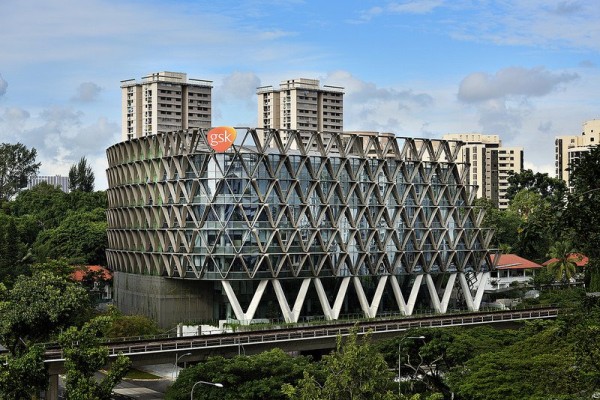GlaxoSmithKline has booked a 2 percent dip in revenues for the first quarter to £7.2 billion, after results were hit by a “significant currency impact” and lower sales of prescription drugs.
Profit after tax fell 38 percent to £759 million, while earnings per share dropped to 11.2p from 21.4p a year ago.
However, the drugs giant did stress that organic sales growth was achieved across its three businesses, with Pharmaceuticals hitting £4.0 billion (-4 percent, or +2 percent at constant exchange rates [CER]); Vaccines £1.2 billion (+7 percent or +13 percent at CER); and Consumer Healthcare £2.0 billion (-3 percent or +2 percent CER).
Within the Pharmaceuticals division, there was strong growth from new asthma biologic Nucala (mepolizumab; up 76 percent or 86 percent at CER to £104 million), and from the Ellipta portfolio, which pulled in £386 million (up 25 percent or 34 percent at CER).
However, this was partly offset by lower sales of Seretide/Advair (salmeterol/fluticasone; -25 percent/20 percent at CER to £566 million), Ventolin (albuterol; -16 percent or 9 percent at CER to £180 million) and established products, the firm noted.
Continued growth was also seen from dolutegravir-based HIV products, including the new two-drug regimen Juluca (dolutegravir and Janssen’ rilpivirine), with revenues of £964 million, up 15 percent or 23 percent at CER.
Revenues from the vaccines division were driven by new sales of shingles vaccine Shingrix of £110 million, following its approval in Japan and Europe last month, as well as increased demand for Bexsero for meningitis B prevention (growing of 10 percent or 13 percent at CER to £139 million) and Hepatitis vaccines (up 17 percent/24 percent CER to £195 million), but declines in established vaccines (-1 percent, or +3 percent CER to £939 million) and Menveo (£37 million, -33 percent/-25 percent CER), were a drag on results.
Commenting on the performance, GSK chief executive Emma Walmsley said the firm has “continued to make good progress in the first quarter with sales growth on a CER basis across all three businesses.
"We are strongly focused on commercial execution with encouraging starts for our most recent new product launches, Shingrix, Trelegy and Juluca. This performance combined with continued cost discipline has driven a further improvement in the Group’s Adjusted operating margin at CER.”
She also highlighted that GSK’s move to take total ownership of the Consumer Healthcare joint venture with Novartis “will help improve future cash generation and support capital planning for the Group’s main priority to strengthen the Pharmaceuticals business and R&D pipeline.”
Outlook
Looking forward, the group said it expects to make continued progress in 2018, although the expectation for Adjusted EPS growth is impacted by a number of factors, such as uncertainties relating to the timing and extent of potential generic competition to Advair in the US.
If no substitutable generic competitor to Advair is introduced to the US market in 2018, GSK continues to expect Adjusted EPS growth of 4 to 7 percent at CER for the year.
In the event of a mid-year launch of a substitutable generic competitor to Advair in the US, full year 2018 Advair sales of around £750 million at CER are expected, with Adjusted EPS flat to down 3 percent at CER.

 755
755


